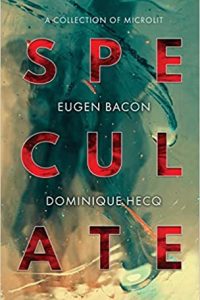Liz Bourke Reviews The Obsidian Tower by Melissa Caruso
 The Obsidian Tower, Melissa Caruso (Orbit 978-0-316-42509-4 $16.99, 510pp, tp) June 2020. Cover by Peter Bollinger.
The Obsidian Tower, Melissa Caruso (Orbit 978-0-316-42509-4 $16.99, 510pp, tp) June 2020. Cover by Peter Bollinger.
It’s interesting to have read Melissa Caruso’s The Obsidian Tower and Jenn Lyons’s The Memory of Souls very close together. Although these are structurally and stylistically very different novels – The Obsidian Tower opens a new trilogy from Caruso, narrated, like her earlier Tethered Mage trilogy, in a first-person voice, while The Memory of Souls is the third novel in a series of four and deploys a range of narrative and point-of-view approaches undergirt by a successful marriage of playfulness and accessibility – the qualities they have in common lend them significant overlap in theme and in sensibility. Despite high stakes (the fates of nations, the world, perhaps even the universe), these are books that never lose sight of the importance of connection between individuals and communities, of human flaws and frailties, and human moments of humour and grace. Even when they depict cruelty and weakness, they do so with great empathy for suffering – and strong arguments against seeing the suffering as abject or inevitable.
The Obsidian Tower takes place in the same world as The Tethered Mage and its sequels, The Defiant Heir and The Unbound Empire, but some 150 years later, and – instead of in Venetian-inspired Raverra – in a domain of Vaskandar, a turbulent union of statelets ruled by near-immortal mages who’re connected to every living thing within their demesnes.
Ryxander is the granddaughter of the Lady of Owls, ruler of the domain of Morgrain. Ryx is unusual: instead of connecting her to life, her magic drains life from every living thing she touches, unless they’re a mage capable of protecting themselves, and she can neither control nor direct it. It has made for a somewhat lonely life.
Despite the problems of her magic, Ryx has used her Raverran mother’s diplomatic connections and her own native wit and intelligence to help her domain prosper. In addition, Ryx holds the position of Warden of Gloamingard Castle, the seat of the Lady of Owls’s power. At the heart of the castle – a baroque construction, added to by each of the rulers of Morgrain – stands a black tower. The tower is sealed by magic, and has been for thousands of years. Ryx doesn’t know what the tower holds; she only knows the Gloamingard lore about the tower: “nothing must unseal the door.”
While attempting to host a diplomatic summit to calm tensions between the Vaskandrian domain of Alevar – ruled by the warlike, ambitious Shrike Lord – and the Empire of Raverra, Ryx surprises the Shrike Lord’s envoy attempting to enter the tower. In the ensuing confrontation, Ryx accidentally kills the envoy – but not before the door has been (however temporarily) unsealed.
The Shrike Lord’s envoy was also his affianced bride. On top of whatever disaster unsealing the door might give rise to – and the disappearance of the Lady of Owls in its aftermath – Ryx is facing a diplomatic crisis of fairly epic proportions. Not only does the Shrike Lord want the head (metaphorical: really, he wants the living body to torture to death) of whoever killed his betrothed, but Raverra and all the domains of Vaskandar want to know about whatever power lies at the heart of the Black Tower, and either control it themselves or destroy it so that no one else can. Factions in both Vaskandar and Raverra want war: this might be the excuse they need to break a peace that, however tenuously, has lasted for generations.
Ryx’s only allies might be a team of spies and trouble-shooters from the one organisation that embodies cooperation between Raverra and Vaskandar: the Rookery. The Rookery is dedicated to investigating and resolving magical threats that might disturb the peace, and this team initially came to Gloamingard to investigate rumours about the Black Tower (and about Ryx). Now they might be the only people who can help Ryx stop a disaster and prevent a war.
Ryx has to grapple with temptation and the possibility of betrayal, though. A Raverran jess means, with her magic sealed, she can touch people without fear of killing them, but it puts what power she has under the control of someone else, and that may or may not work out well – especially in the middle of a diplomatic crisis that her death at the Shrike Lord’s hands may help resolve.
Especially when Ryx and the other inhabitants of Gloamingard Castle learn that the heart of the Black Tower may be a gate to Hell itself.
The Obsidian Tower has a larger scope of trilogy-initiating problems than The Tethered Mage: there, the problems were definitely human, albeit scaling up to international war, while here the scale reaches demons capable of destroying human civilisation could get loose. And yet, though the problem seems larger, the focus remains on individual human consequences: relationships changed or ruptured; loyalties challenged, reaffirmed, or realigned; friendships forged or betrayed; a granddaughter’s love for her grandmother; a young woman who is finally able to hug people and contemplate romantic connections. It’s this focus on well-drawn characters, their connections, and their difficulties, that gives The Obsidian Tower its power and makes it such a satisfying read.
The Obsidian Tower shares with Caruso’s previous work a youthful female protagonist from the uppermost echelons of society, but one who doesn’t feel like she quite knows how to fit in; a fair helping of skillfully wrought intrigue and political manoeuvring; and a commitment to including queer folks (including a bisexual protagonist). It also shares a strong voice and a thriller-like approach to pacing.
I was a fan of Caruso’s work to start with, but with The Obsidian Tower she’s hit another level in terms of prose and tension. This is a truly excellent fantasy, and an epic beginning for a new trilogy. I can’t wait to see what she does next.
Liz Bourke is a cranky queer person who reads books. She holds a Ph.D in Classics from Trinity College, Dublin. Her first book, Sleeping With Monsters, a collection of reviews and criticism, is out now from Aqueduct Press. Find her at her blog, her Patreon, or Twitter. She supports the work of the Irish Refugee Council and the Abortion Rights Campaign.
This review and more like it in the August 2020 issue of Locus.
 While you are here, please take a moment to support Locus with a one-time or recurring donation. We rely on reader donations to keep the magazine and site going, and would like to keep the site paywall free, but WE NEED YOUR FINANCIAL SUPPORT to continue quality coverage of the science fiction and fantasy field.
While you are here, please take a moment to support Locus with a one-time or recurring donation. We rely on reader donations to keep the magazine and site going, and would like to keep the site paywall free, but WE NEED YOUR FINANCIAL SUPPORT to continue quality coverage of the science fiction and fantasy field.






